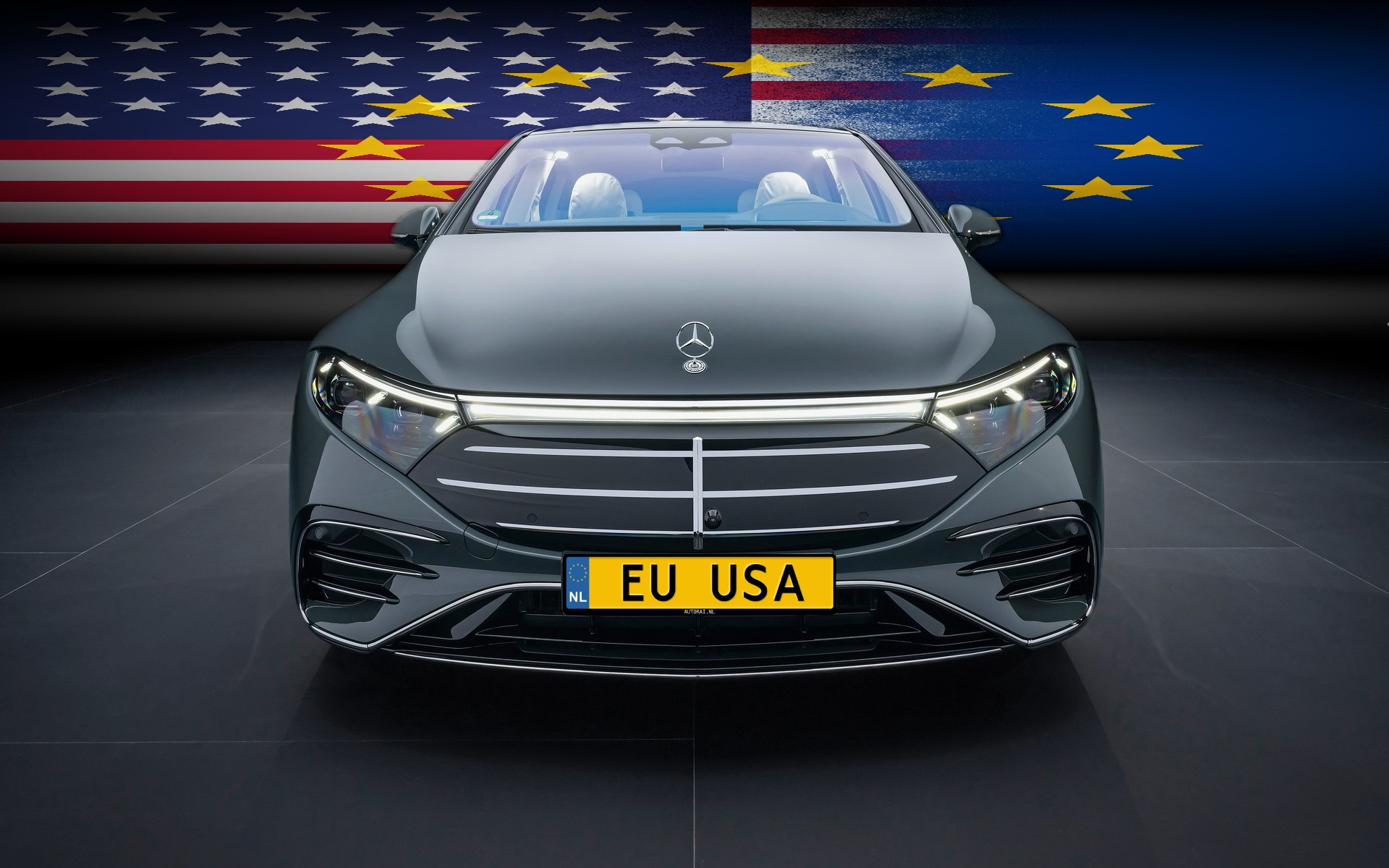Import duty on EU cars to US reduced: this is agreed in new trade deal
Trade Agreement
A new trade agreement between the European Union and the United States reduces the U.S. import duty on cars from Europe. This is good news for European automakers looking to export to the U.S. market, as this lower import duty will make it cheaper for Americans to buy a European car. The agreement is the result of intensive negotiations and was concluded under the leadership of President Trump and Commission President Von der Leyen.
Auto exports to U.S. get cheaper
The main outcome of the new trade agreement is the reduction of the U.S. import duty on cars from the EU from 25 to 15 percent. For European automakers, this means good news, as European cars will become cheaper for the American public to buy. That offers a competitive advantage over other exporting countries.
According to those involved, this was one of the most sensitive issues during the negotiations. Indeed, until recently, the U.S. levied a 25 percent tariff on European cars, severely affecting the competitiveness of European brands in the U.S. market.
Context: negotiations on edge
The agreement came in the nick of time. President Trump had set Aug. 1 as a hard deadline for an agreement. Failure would have resulted in a tariff increase of up to 30 percent. After weeks of intense negotiations, a last-minute agreement was reached during a meeting at a Scottish golf resort owned by Trump.
Although Trump still estimated the chances of success at “fifty-fifty” beforehand, he emphasized the historic significance of the agreement after the talks: “The biggest deal ever made by anyone.” Von der Leyen concurred, calling the agreement “a milestone in the transatlantic trade relationship.”
Steel and aluminum remain exempt
Interestingly, the agreement does not apply to all sectors. For steel and aluminum, previously increased U.S. import tariffs of 50 percent remain in place. Although Von der Leyen later spoke of a reduction and a new quota system for these materials, Trump gave no further explanation. The details of this part remain unclear for now.
EU makes concessions on energy and defense
In exchange for the reduced car tariff, the EU has agreed to purchase billions in energy and military goods from the US. According to Von der Leyen, this contributes to European energy security, an issue that has become increasingly urgent after declining dependence on Russian gas.
In addition, the parties agreed that a range of strategic goods – including aircraft, semiconductors, pharmaceuticals and certain agricultural products – will no longer be subject to import tariffs. The list of these “strategic goods” is to be fleshed out in the coming weeks.
No reciprocal increases
The European Union has refrained from retaliating or raising its own tariffs on U.S. products. This leaves the agreement unilaterally in favor of U.S. import tariffs. Still, the EU speaks of a balanced deal. The strategic exemptions, as well as the promise of further cooperation, seem to be the basis for this.
Trade framework for the future
Both sides stressed that the current agreement is only a beginning. Further details will be worked out in the coming weeks and additional talks will take place on additional rate reductions and cooperation in strategic areas.
The timing of the agreement is geopolitically significant. The US also recently struck trade deals with Japan and the UK, each with a reciprocal 15 percent tariff as a starting point. In that context, the deal with the EU fits into a broader U.S. realignment of trade relations.
Greater stability and export potential
For the European auto industry, this agreement opens new doors. It may result in another sales boost of European models on the U.S. market. At the same time, the deal offers room for further trade liberalization on strategic goods, which can also benefit other European sectors.
Both Trump and Von der Leyen spoke of stability, predictability and enhanced economic cooperation between the two continents. If the agreements are put into practice, this agreement could indeed become one of the most important transatlantic trade agreements of the past decade.

